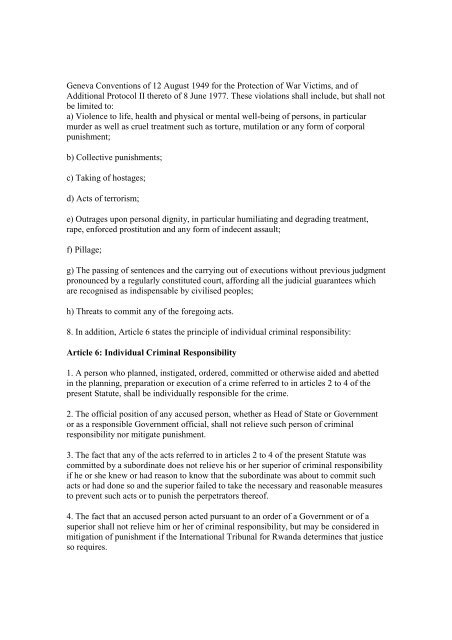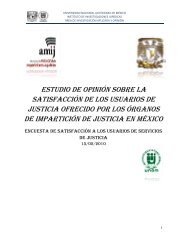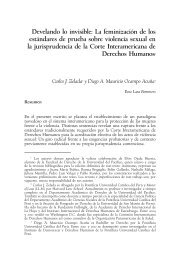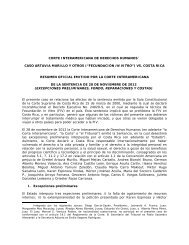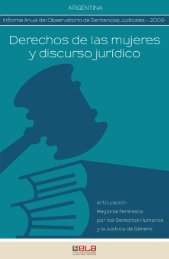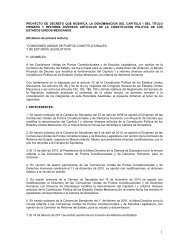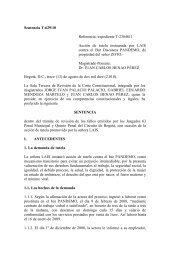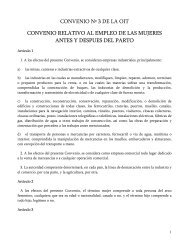Case No. ICTR-96-4-T - International Criminal Tribunal for Rwanda
Case No. ICTR-96-4-T - International Criminal Tribunal for Rwanda
Case No. ICTR-96-4-T - International Criminal Tribunal for Rwanda
- No tags were found...
You also want an ePaper? Increase the reach of your titles
YUMPU automatically turns print PDFs into web optimized ePapers that Google loves.
Geneva Conventions of 12 August 1949 <strong>for</strong> the Protection of War Victims, and ofAdditional Protocol II thereto of 8 June 1977. These violations shall include, but shall notbe limited to:a) Violence to life, health and physical or mental well-being of persons, in particularmurder as well as cruel treatment such as torture, mutilation or any <strong>for</strong>m of corporalpunishment;b) Collective punishments;c) Taking of hostages;d) Acts of terrorism;e) Outrages upon personal dignity, in particular humiliating and degrading treatment,rape, en<strong>for</strong>ced prostitution and any <strong>for</strong>m of indecent assault;f) Pillage;g) The passing of sentences and the carrying out of executions without previous judgmentpronounced by a regularly constituted court, af<strong>for</strong>ding all the judicial guarantees whichare recognised as indispensable by civilised peoples;h) Threats to commit any of the <strong>for</strong>egoing acts.8. In addition, Article 6 states the principle of individual criminal responsibility:Article 6: Individual <strong>Criminal</strong> Responsibility1. A person who planned, instigated, ordered, committed or otherwise aided and abettedin the planning, preparation or execution of a crime referred to in articles 2 to 4 of thepresent Statute, shall be individually responsible <strong>for</strong> the crime.2. The official position of any accused person, whether as Head of State or Governmentor as a responsible Government official, shall not relieve such person of criminalresponsibility nor mitigate punishment.3. The fact that any of the acts referred to in articles 2 to 4 of the present Statute wascommitted by a subordinate does not relieve his or her superior of criminal responsibilityif he or she knew or had reason to know that the subordinate was about to commit suchacts or had done so and the superior failed to take the necessary and reasonable measuresto prevent such acts or to punish the perpetrators thereof.4. The fact that an accused person acted pursuant to an order of a Government or of asuperior shall not relieve him or her of criminal responsibility, but may be considered inmitigation of punishment if the <strong>International</strong> <strong>Tribunal</strong> <strong>for</strong> <strong>Rwanda</strong> determines that justiceso requires.


